Silabus S3 Mikrobiologi
- Last modified at 2 March 2021
Syllabus
Biological System of Prokaryotes ( MIK71A/ 2 (2-0))
This course discusses the processes that occur in microbes, especially bacteria and their role in the ecosystem. Aspects studied include the development of the application of microbiology, the role of physiology, genetics and bacterial ecology as part of an ecosystem. Active discussion and presentation will be part of this lecture.
Coordinator: Prof. Dr. Anja Meryandini
System Biology of Fungi (MIK 72 A / 3 (2-1)
This course discusses theories in the fungal biology processes at various levels of the omic system. Exploration in fungal biology systems examples with big data and different models and using different software will be explained.
Coordinator: Dr. Gayuh Rahayu
Scientific Communication in Microbiology (BIO72B / 2 (2-0)
The course covers principle and etic in research by applying scientific methodology, summarizing and citing scientific papers, intellectual property right, searching and selecting best quality journal, and scientific writing technique for targeted journal. In the end of the course, the student will carry out presentation on selected topic from good international reputable journal
Coordinator: Dr. Sri Listiyowati, M.Si
Analysis of Microbial Data (MIK71B/2(2-0))
This course describes various methods of data analysis of microbes based on molecular/genetic big-data. Subjects include various sites of biological Database providers and various methods to analyse them related to the visualization of protein structures, comparison of protein structures, sequences alignment, prediction of domain motifs, predictions of genes and promoters, phylogenetic, prediction of protein structure, genome analysis, transcriptome analysis and drug discovery.
Coordinator: Dr. Iman Rusmana, M.Si
Philosophy of Science (PPS702 /2(2-0))
Extensive study of knowledge and science covering epistemology (logic, ontology, axiology, teleology), ethics, aesthetics, and discussion of the role of science and technology and morality in life to seek truth for the benefit of humanity. This course has 2 credits.
Fungal Symbiont (MIK 72C / 3 (2-1)
The course covers basic knowledge and application of mycorrhiza and fungal endophytes in agriculture, forestry, health and sustainable environment. The aspects discussed are development, diversity and function, physiology, ecology, genetics and molecular biology as well as their role in nutrient cycling, biological fertilizer, biological control, bioremediation, inoculum production technology, edible ectomycorrhiza, fungal secondary metabolite production, medicinal source, genetic manipulation, and role and application in agriculture, forestry, health and sustainable environment. Student discussion also play important part in this course. Practical class is also carried out in this course.
Coordinator: Dr Ir Nampiah Sukarno
Prokaryotic Symbiont (MIK71G/3 (2-1)
The course will cover an overview of prokaryotic symbiont, symbiosis phenomena and evolution, biodiversity, role of endo-symbiont, prebiotics and probiotics, the existence and role of prokaryotic symbiont found in insect and flower as a model in an ecosystem as well as role of prokaryotic symbiont in preventing potential pathogen. Indepth discussion in a group or an individual presentation about current research in prokaryotic symbiont will be conducted in addition of practical class activity
Coordinator: Dr. Ir. Yulin Lestari
Molecular Biology of Prokaryote Diversity (MIK713/3(2-1))
This course describes the various biochemical and genetic aspects as a basis of the diversity of of physiology, habitat, ecological roles, and biotechnology of prokaryotes. Subjects include energy-tranducing systems, Prokaryote evolution and taxonomy as well as a variety of examples that represent the latest developments in molecular biology, biochemistry and ecophysiological approaches.
Coordinator: Dr. Iman Rusmana, M.Si
Biology and Control of Pathogenic Bacteria (MIK71E (2-0) SKS
This course discusses the biological concept of the interaction of pathogenic bacteria to the host (human) as well as its control strategies. Students will be exposed to the knowledge of biodiversity, morphology, physiology and pathogenesis mechanism, and the role of virulence factors towards host destruction. The techniques and research plan of control and early detection of pathogenesis will also be discussed.
Coordinator: Prof. Dr. dr. Sri Budiarti
Genetic Engineering of Microorganism (MIK-71C / 2 (2-0))
This course discusses the structure of microbial genome and the flow of genetic information, basic principles in gene (DNA) cloning technology, various techniques or strategies in molecular cloning, the construction of genomic libraries, metagenomic libraries, and cDNAs library and their screening, expression and overexpression of genes in Escherichia coli, and various techniques for analyzing gene expression and recombinant proteins. Directed mutagenesis and protein engineering, genetic engineering on other than E. coli, Agrobacterium as a medium for gene transfer, molecular farming, gene silencing, and genome editing with CRISPR-Cas9 will also be discussed in this course.
Coordinator: Prof. Dr. Aris Tri Wahyudi, MSi.
Research Proposal (BIO702/ (2(0-2))
Course of research proposal requires students to write their research plan. The proposed research included: literature studies, preparation of research methods and hypotheses designed. The research proposal was prepared with the approval of the supervisor.
Colloquium (BIO 601/1(0-1))
Colloquium is a scientific forum for students to present their research plans for thesis that have been consulted with the supervisor board. Colloquium is carried out in front of students, supervisors, and lecturers. The final result of the colloquium is set in research proposal form that is ready to be used as a reference in conducting thesis research.
Coordinator: Prof. Dr. dr. Sri Budiarti
International Scientific Publication I (BIO797/3(0-3))
Part of the dissertation research activity, which is written into scientific articles, published in accredited and reputable international scientific journals.
International Scientific Publication II (BIO797/3(0-3))
Part of the dissertation research activity, which is written into scientific articles, published in accredited and reputable international scientific journals. Student must fulfilled the International scientific publication II course in order to complete this course.
Seminar (PPS790/1(0-1))
Seminar is a presentation of research results (thesis or dissertation) in a Postgraduate School’s scientific forum. This course is aimed to disseminate research results both in writing and verbal, in order to absorb the input from forum. Those input are then used to to improve the quality of thesis, add scientific insight as well as to improve the student’s competency in scientific communication. Provides scientific writing technique from various scientific works that covers writing project proposal and reports, including the way to deliver and present data, make slides and use computer with Liquid Crystal Display (LCD) Viewers.
Presentation at Scientific Seminar (BIO793/1(0-1))
Presentation of dissertation research results in both national and international scientific conferences /seminar
Defense (BIO798/3 credits)
Disertation defense or final exam for doctoral program is the final evaluation after students of doctoral program conduct research activities, thesis writing, and seminars. This thesis exam is intended to assess the ability of master program students to defense their results. The scope of the thesis exam includes the dissertation draft and comprehensive knowledge of students relating to competence [science and methodology], critical thinking [analysis, synthesis], innovative and creativity skills, communication and solutions that are directly and indirectly related to the thesis. Doctoral program students who will take the final examination must meet the academic and administrative requirements, which set by IPB Postgraduate School.






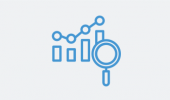
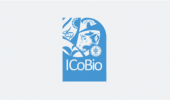
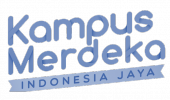






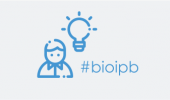


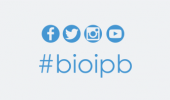












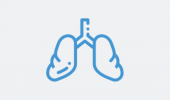










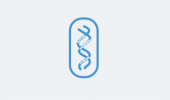


.png)








Login
LoginSitemap
map